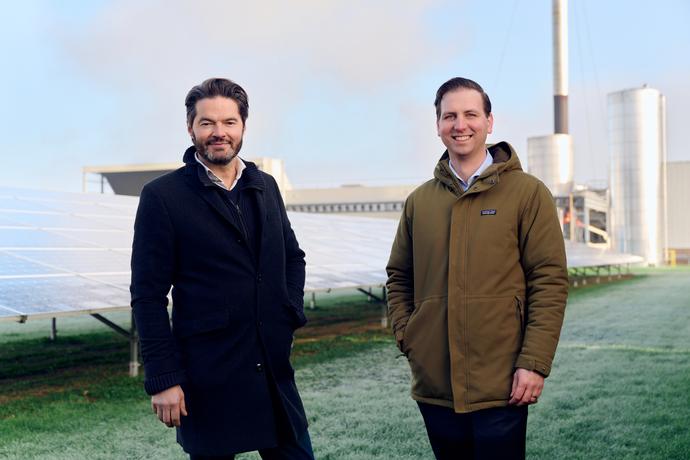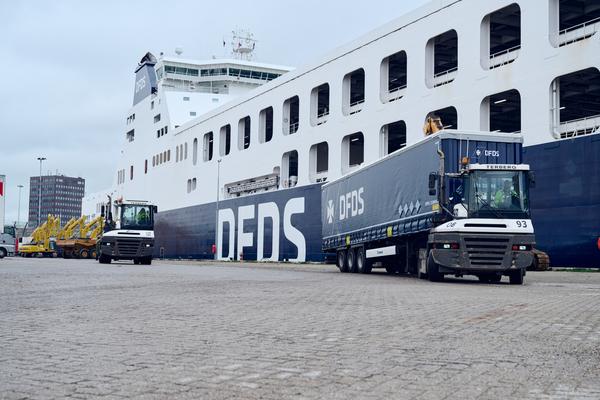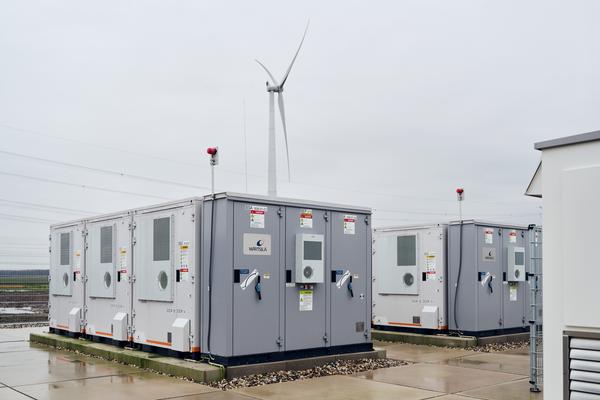
Thermal battery’s renewable energy to fry crisps
Lays crisps and Cheetos snacks will soon be leaving PepsiCo’s crisp factory in the Dutch village of Broek op Langedijk after frying in oil heated by a thermal battery; the stored heat itself will be generated by green energy.This – as yet unequalled – innovation is the fruit of PepsiCo’s partnership with Eneco. In fact, this large-scale electrification project sets an example for the food industry and could bring us a hefty step closer to the Dutch climate goals.
If we, in the Netherlands, are to produce 55 per cent fewer greenhouse-gas emissions in 2030 than we did in 1990, our industry needs to act now and make production more sustainable. Both PepsiCo and Eneco are very much aware of the urgency of the situation. Soft drinks, crisps, savoury snacks and breakfast cereals manufacturer PepsiCo means to achieve a 75-per cent drop in CO2 emissions at its production facilities by 2030.
However, there is a lot more to it than simply replacing a gas heater with a few solar panels, and that certainly applies to bulk consumers like the crisp factory in Broek op Langedijk.
Solutions for natural gas
‘Our sustainability strategy includes some solid commitments’, explains Japo Ouwerkerk, PepsiCo’s Corporate Affairs Director for Northern Europe. ‘That’s why we started looking for innovative pilots in Europe that we could then roll out to other parts of the world. We decided to explore the options for making one of our crisp factories in the Netherlands more sustainable. The most important issue here was: how do we make an energy-intensive industry, one that runs on natural gas for 80 per cent of the time, more sustainable?’
‘The answer to that question is electrification using a thermal battery’, replies Wouter De Lille, Eneco’s Project Developer. The design and implementation of this new technology at the Broek op Langedijk site is the product of a joint quest.
In 2019, Eneco got in touch with PepsiCo, because the energy company, pioneering the energy transition, was looking to help customers switch to more sustainable operations. ‘It’s important, as our customers’ CO2 emissions, which arise from the use of Eneco’s energy products, make up more than 90 per cent of our overall emissions’, De Lille continues.
To convert the crisp factory’s processes from natural gas to electricity, they needed to come up with a solution to their biggest problem: green energy is not always available when there is a demand for it and vice versa – a problem solved by the thermal battery.
A giant blow dryer
Sometimes, the sun and wind cannot generate enough green energy to provide the power needed for the manufacturing process, while at other times, there’s more energy than can be used right then. A heat storage unit, designed by German company Kraftblock, can store that ‘excess’ green energy, which can be used later for heating.
The unit uses a huge blow dryer, known as the e-heater, which converts electricity into air that can get up to 800 degrees Celsius. The hot air is transferred to a large tank where it is stored in small, heat-retaining balls called steel slags. When you need heat, you take it out of the tank again and introduce it into the manufacturing process
98-per cent reduction in CO₂ emissions
A manufacturing site can satisfy its demand for heat completely sustainably with the help of this invention, as long as the storage unit is large enough. PepsiCo has already made plans for the installation: in May 2023, work will start on the first of two storage units in Broek op Langedijk.
When it is used at full capacity, the CO2 emissions will drop by 51 per cent at the first stage, in comparison with PepsiCo’s predicted emissions without this environmentally-friendly solution. ‘If that goes to plan, we want to expand it with another three units, which could mean a 98-per cent reduction in our CO2 emissions’, Ouwerkerk says.
Not just for the food industry
This technology can be put to good use in more places than just PepsiCo’s crisp factories. ‘I think this system, with a few tweaks, would be suitable for far more sectors’, Ouwerkerk suggests. ‘That’s why we have chosen this technology’, De Lille agrees. ‘This method for storing heat can be used in lots of different ways. In this case, the unit heats thermal oil, but it can produce steam, hot air and warm water, too.’Making an impact
‘It’s quite a challenge,’ De Lille says, referring to reducing customers’ carbon emissions. He goes on to explain: ‘Consumers can switch to a heat pump or heat grid, if there is one, but technologies that can actually make our industry more sustainable are few and far between. We’re an energy company, so we want to invest in those technologies too.’
There were a few moments when the partnership hung by a thread, following the recent instability in the market, but giving up was never an option. According to De Lille, their achievements are all down to the constant belief in the project that Eneco and PepsiCo continued to share despite the difficulties. ‘Together, we can make the biggest impact.’
This article was written by NU.nl’s commercial editorial team.

